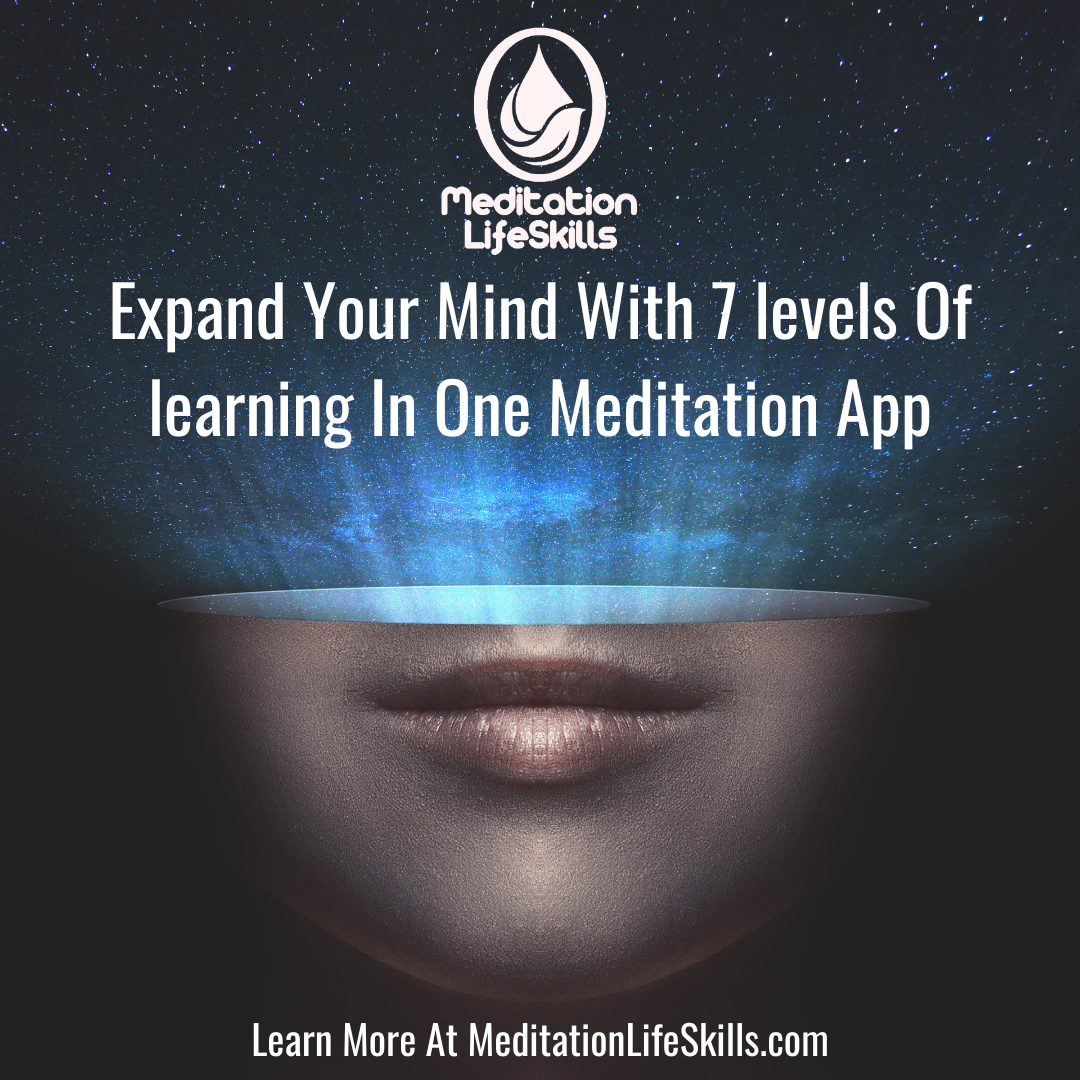
Understanding anxiety and its impact on mental health
One powerful tool that has gained significant attention in recent years is mindfulness meditation for anxiety. Anxiety is a common mental health issue that affects millions of people worldwide.
It can manifest as excessive worry, fear, and unease, often interfering with daily activities and overall well-being. Living with anxiety can be challenging, but there are effective strategies to manage and alleviate its symptoms, such as emotion regulation.
What is mindfulness meditation?
Mindfulness meditation is a practice rooted in ancient Buddhist mindfulness traditions involving emotion regulation and intentionally focusing on the present moment without judgment.
PODCAST: The Difference Between Mindfulness And Meditation
As an effective self-care technique, it cultivates heightened awareness and acceptance, allowing individuals to observe their thoughts, emotions, and bodily sensations without getting caught up in them.
By training the mind to stay present, mindfulness meditation for anxiety helps you better understand your own mental processes and create space for self-reflection and growth.
The science behind mindfulness meditation for anxiety relief
Research has shown that mindfulness meditation has a positive impact on anxiety and can be an effective tool for managing its symptoms. Various studies have demonstrated that regular mindfulness-based meditation helps with stress reduction, reduces anxiety, improves emotional regulation, and enhances overall well-being.
Neuroscientific research has revealed that mindfulness meditation for anxiety can lead to structural changes in the brain, particularly in areas associated with emotion regulation and attention. Mindfulness can help individuals develop a more balanced and resilient response to anxiety-inducing situations.
Benefits of mindfulness meditation for anxiety
The benefits of mindfulness meditation for anxiety relief are numerous and far-reaching. Here are some key advantages that individuals can experience:
- Reduced anxiety symptoms: Mindfulness meditation helps individuals develop non-reactive, non-judgmental, and effective emotion regulation towards their anxious thoughts and feelings. This shift in perspective allows for greater acceptance and reduces the intensity of anxiety symptoms.
- Improved emotional well-being: Regular mindfulness meditation for anxiety enhances emotional regulation skills, enabling you to navigate challenging emotions more easily and resiliently.
- Enhanced focus and attention: Anxiety often leads to racing thoughts and difficulty concentrating. Mindfulness meditation trains the mind to stay focused on the present moment, improving attention, concentration, and proper emotion regulation.
- Better stress management: Mindfulness meditation for anxiety promotes mindful-based stress reduction and emotion regulation, activating the body's natural relaxation response and reducing the physiological effects of stress and anxiety.
- Increased self-awareness: By observing their thoughts and emotions without judgment, individuals gain insight into the underlying causes of their anxiety. This self-awareness mindfulness technique allows for targeted interventions and personal growth.
How to start practicing mindfulness meditation
Getting started with mindfulness meditation for beginners is easier than you might think. Here are some steps on how to do mindfulness meditation to help you benefit from the benefits of meditation as you begin your practice:
- Set aside time: Find a quiet space to dedicate a few minutes each day to your mindfulness practice using relaxation techniques. Start with 5–10 minutes and gradually increase the duration as you become more comfortable.
- Get into a comfortable position: Sit in a comfortable position with your back straight, either on a cushion or a chair. You can also lie down if that feels more comfortable for you.
- Focus on your breath: Bring your attention to your breath, noticing the sensation of the air entering and leaving your body. Allow your breath to anchor, bringing your attention back whenever your mind wanders.
- Observe your thoughts and emotions: As you practice mindfulness meditation for anxiety, you will inevitably have thoughts and feelings arise. Instead of getting caught up in them, observe them without judgment, allowing them to come and go.
- Be patient and kind to yourself: Mindfulness meditation is a practice that takes time to develop emotion regulation. Be patient with yourself, and remember that it's normal for your mind to wander. Gently bring your attention to your breath when you notice it has drifted.
Mindfulness meditation techniques for anxiety relief
Various mindfulness, meditation, and yoga techniques can be particularly beneficial for anxiety relief. Here are a few methods you can incorporate into your practice:
- Body scan meditation: In this progressive muscle relaxation mindfulness meditation for stress reduction technique, you systematically scan your body from head to toe, bringing your attention to each body part and noticing any sensations or tension. This mindfulness practice helps develop body awareness and release physical tension associated with anxiety.
- Loving-kindness Meditation: involves directing loving kindness and compassion towards yourself and others. It cultivates a sense of connectedness and fosters positive emotions, counteracting the adverse effects of anxiety.
- Breathing exercises: Simple mindful breathing exercises, such as deep belly breathing or counting your breaths, can help calm the nervous system and promote relaxation and emotion regulation. Mindfulness techniques can be done anytime and anywhere, providing immediate anxiety relief.
PODCAST: 12-Minute Guided Inner Peace Mindful Breathing Meditation
Incorporating mindfulness into your daily routine
To experience the full benefits of mindfulness meditation for anxiety, it's essential to incorporate mindfulness into your daily routine. Here are some tips to help you integrate mindfulness and the benefits of meditation into your day:
- Morning mindfulness: Start your day with a few minutes of guided meditation. This sets a positive tone for the day and helps cultivate a sense of calm and focus.
- Mindful eating: Pay attention to the sensory experience of eating, savoring each bite and noticing the flavors, textures, and smells. This practice promotes mindful eating and can help reduce anxiety-related food cravings.
- Mindful breaks: Take short mindfulness breaks throughout the day. Pause briefly to bring your attention to your breath and observe your thoughts and emotions. This can help you stay present and reduce stress and anxiety.
Mindfulness apps and resources for anxiety relief
In today's digital age, numerous mindfulness apps and resources are available to support your mindfulness meditation practice. Here are some popular options:
- Headspace: A well-known app offering guided meditation sessions for emotion regulation and mindfulness exercises.
- Calm: This app provides guided meditations, sleep stories, and music to relieve relaxation and anxiety.
- MeditationLifeSkills.com: Discover a wealth of resources and courses to deepen your meditation practice and find guidance on anxiety relief.
PODCAST: Beautiful Guided Meditation For Healing Your Mind And Body
Conclusion: Finding peace within through mindfulness meditation
Mindfulness meditation for anxiety is powerful for anxiety relief, emotion regulation, and overall mental well-being. By cultivating a state of present-moment awareness and acceptance, you can develop a greater understanding of their anxiety disorders and learn to navigate them with mindful-based stress reduction.
With regular practice and patience, and even using mindfulness-guided meditations, mindfulness can bring about profound positive changes in one's life. So why not embark on this transformative journey today? Learn how to deepen your meditation practice at MeditationLifeSkills.com and discover the peace within you.
Note: This article provides mindful-based advice. If you are experiencing severe anxiety or mental health issues, it is essential to seek help from a qualified healthcare professional.

















